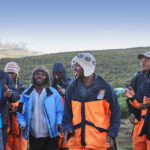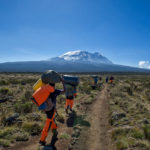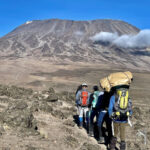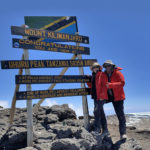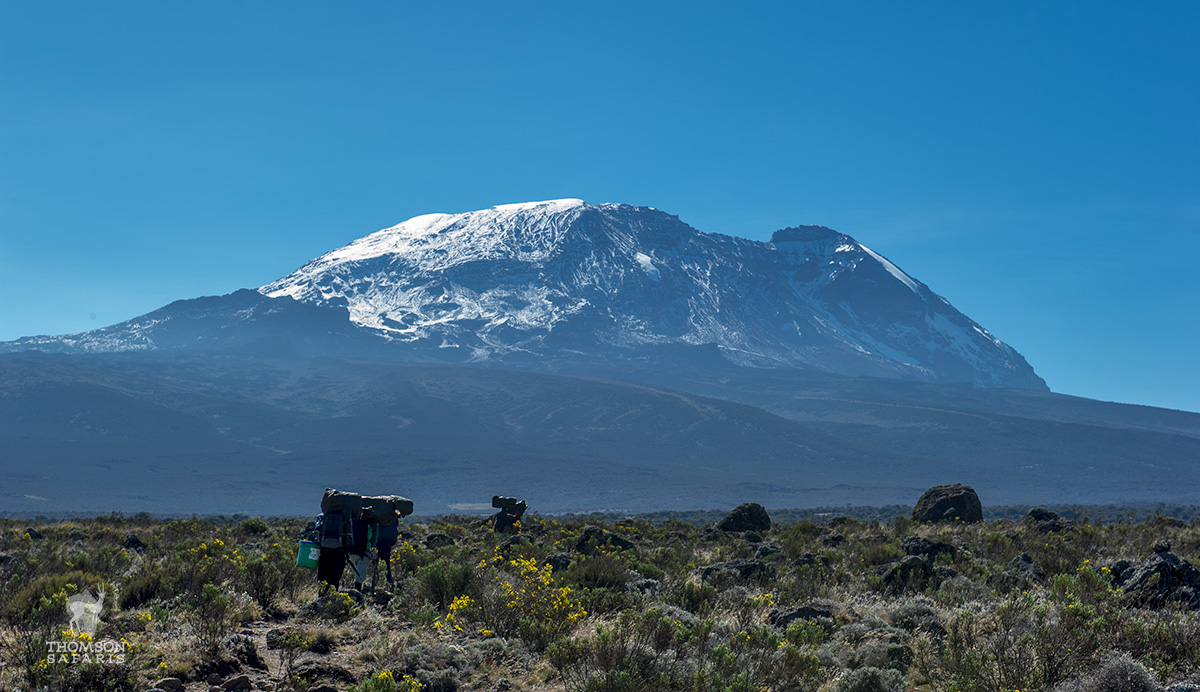
Imagine standing at the foot of Kilimanjaro preparing to hike 45 miles over seven days – 19,341 feet up and then back down again. You wear an old pair of sneakers, and most of your clothing and equipment isn’t mountaineering quality. You carry a 60-pound pack, balancing it on your head.
Over the week, you’ll get one meal per day. Your tent, if you have one at all, will be leaky and cold, and you’ll sleep crowded with other porters. After seven days, you’ll earn very little money, and you’ll pay some of it as a bribe to work again next week. Your outfitter will also cut your tips as part of an agreement for your “right to work.”
This is no exaggeration; it was the common experience for many porters less than a decade ago – one meal, crushing weight loads, meager equipment, terribly little pay, obligatory payments to secure work, and an unspoken code of silence in exchange for more work.
With tremendous effort, conditions have improved across Kili. That’s not just our doing. Thomson Safaris is a tireless champion for porters’ rights, but change across the mountain requires independent advocacy. That’s where the Kilimanjaro Porter Assistance Project (KPAP) comes in.
What KPAP Does for Porters
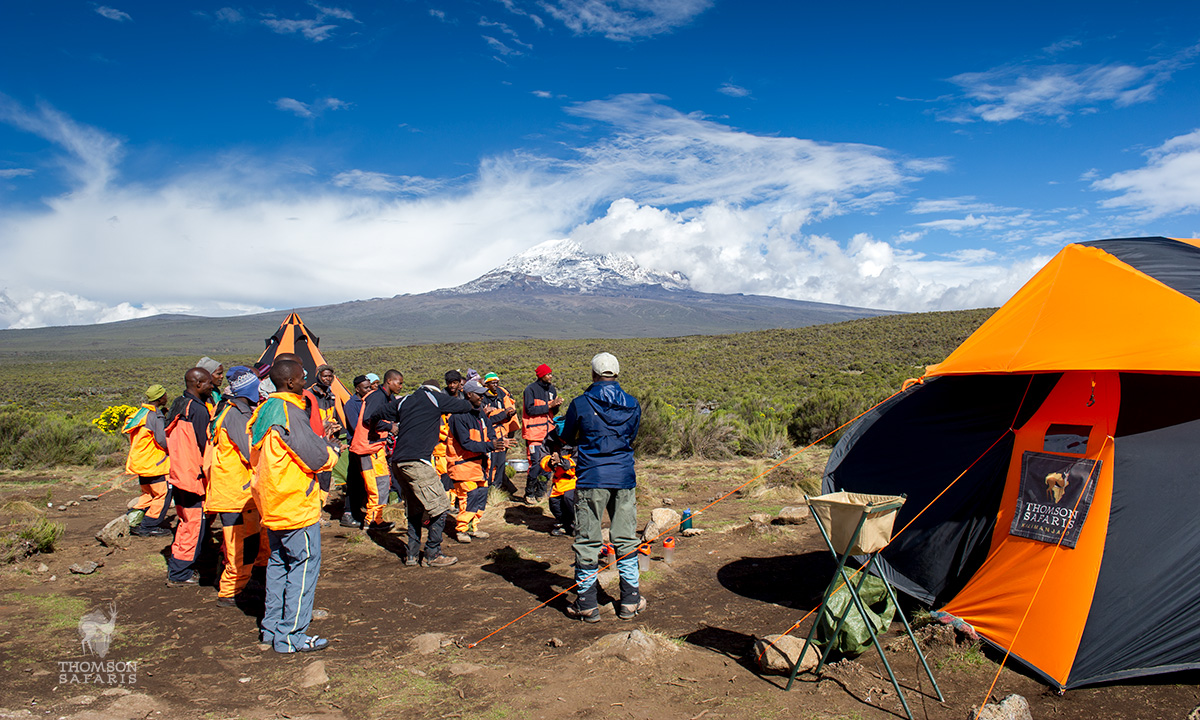
KPAP is a legally registered Tanzanian not-for-profit dedicated to improving porters’ working conditions. In 14 years, it has made major progress for many of Kili’s porters by objectively monitoring companies’ porter hiring and work practices and holding them to a set of standards based on respect, integrity and transparency. Thomson Safaris was one of the original KPAP members, and our collaboration with KPAP has changed the way that Kili operators treat their staff. This has directly resulted in:
- Nearly tripling porter salaries.
- Drastically reducing maximum porter loads to a humane 45lbs.
- Ensuring porters receive the tips intended for them.
- Making certain porters do not pay bribes or commissions to get work.
- Ensuring 99% of its partners feed porters three meals per day.
- Outfitting porters on over 30,000 climbs free-of-charge.
To a large degree, fair working conditions replaced unethical practices thanks to KPAP’s persistent drive for higher standards, better treatment, higher wages and greater access to training for the porters on Kili. Better yet, thanks to KPAP’s Partner for Responsible Travel program, outfitters that treat porters poorly face tremendous pressure to change their practice or risk future business.
All the vital work that KPAP does isn’t possible without financial support. Donations from ethical-minded, individual travelers are the lifeblood of the operation.
We strongly encourage YOU to donate to KPAP
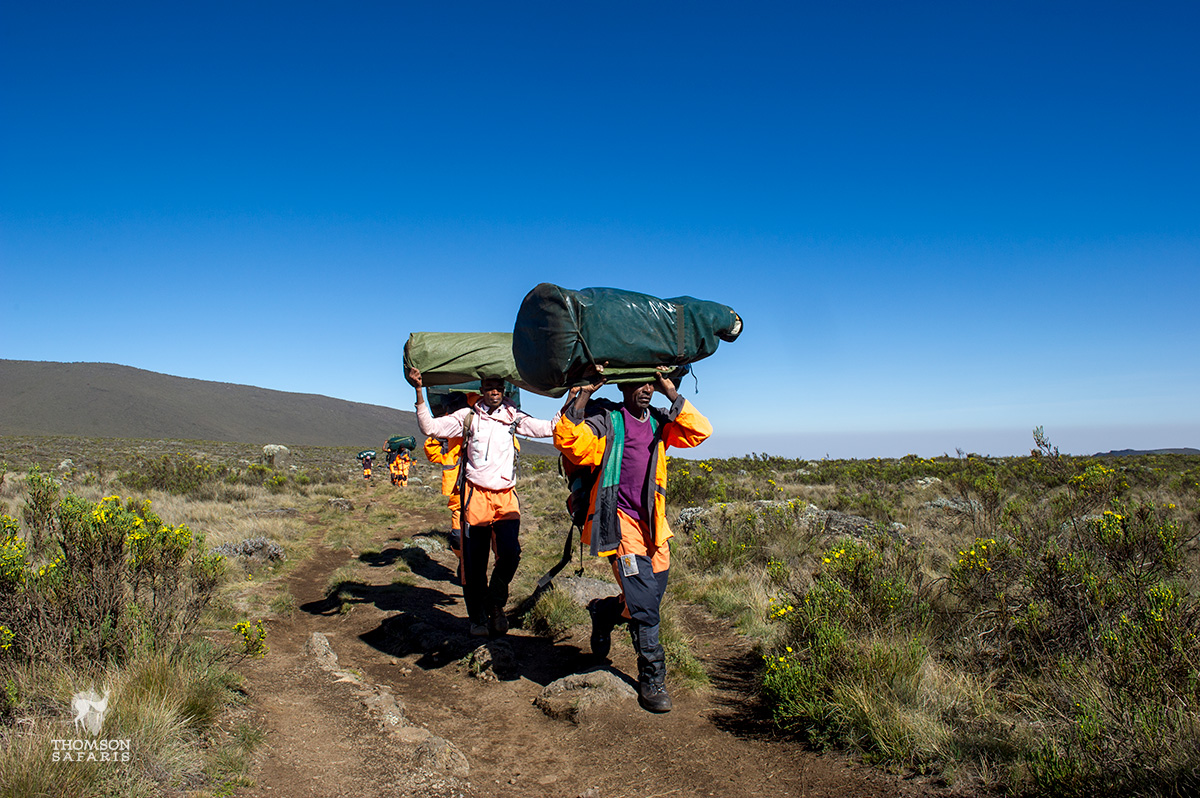
Inadequate support could risk the organization’s future and imperil thousands. Access to equipment and proper training, average porter compensation, and the general standard of porter safety would very likely fall. That’s a possibility we simply cannot tolerate.
Whether you experienced the generous support of a porter in the past, or simply believe ethical treatment is worth protecting, as we do, visit the link below to contribute to KPAP via the International Mountain Explorer Connection. Every little bit counts.

